Versuchen GOLD - Frei
Spot & Treat
Hobby Farms
|Goat-101-24
Parasites happen, but proper management keeps things under control.

It's likely that one or more of your animals will contract a parasite at some point during its lifespan. There are, however, steps you can take to minimize the chance of this happening through proper and effective management. If you think your goat may be suffering from one of the following parasites, consult a veterinarian before beginning any treatment.
INTERNAL PARASITES
Internal parasites, aka endoparasites, live inside a host animal at whose expense they obtain nutrition and shelter.
Many can do a great deal of damage to a goat during the course of their life cycle, while others will peacefully coexist with the goat and cause relatively few health problems.
The primary goal of effective parasite control is to interrupt those life cycles, and there are four major endoparasite categories of concern to goat owners: gastrointestinal nematodes, aka roundworms; lungworms; tapeworms; and coccidia.
These parasites are passed from one goat to another through consumption of the worm eggs or oocysts.
These eggs can be found in persistently wet, soiled places where goats might be eating or grazing.

CAUSES: Goats become infected with internal parasites by eating worm eggs or protozoal parasites when feed is thrown on the ground or when the goats graze in an overly soiled pasture. The parasites are found in the goats’ feces, and the animals become ill after consuming them but continue their life cycle by passing the eggs out in their feces.
Diese Geschichte stammt aus der Goat-101-24-Ausgabe von Hobby Farms.
Abonnieren Sie Magzter GOLD, um auf Tausende kuratierter Premium-Geschichten und über 9.000 Zeitschriften und Zeitungen zuzugreifen.
Sie sind bereits Abonnent? Anmelden
WEITERE GESCHICHTEN VON Hobby Farms
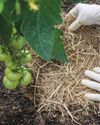
Hobby Farms
Much Ado about MULCHING
MULCHING IS ESSENTIAL TO A SUCCESSFUL GARDEN.
8 mins
Best of Hobby Farms 2025

Hobby Farms
THE ULTIMATE SMALL-FARM HOG Guide
RAISING PIGS CAN BE A TASTY, AFFORDABLE SMALL-FARM ADDITION.
8 mins
Best of Hobby Farms 2025
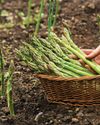
Hobby Farms
PERENNIAL Perks
PERENNIALS PLANTS CAN PRODUCE AND PRODUCE IF YOU PUT IN THE WORK UPFRONT.
7 mins
Best of Hobby Farms 2025

Hobby Farms
THE breeds YOU NEED
SOME LIVESTOCK DO BEST ON SMALL HOBBY FARMS.
9 mins
Best of Hobby Farms 2025

Hobby Farms
THE Ultimate SMALL-FARM RUMINANT
SHEEP ARE EASY TO MANAGE AND EFFECTIVE FORAGERS.
6 mins
Best of Hobby Farms 2025

Hobby Farms
DAIRY STAPLES
MAKE THESE DAIRY PRODUCTS FROM NONHOMOGENIZED MILK.
4 mins
Best of Hobby Farms 2025
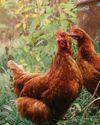
Hobby Farms
raise STRONGER CHICKENS
Look around your kitchen, and you'll likely find some natural poultry supplements.
6 mins
Best of Hobby Farms 2025
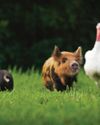
Hobby Farms
FLERD is the Word
EXPLORE THE BENEFITS & BARRIERS OF MULTISPECIES PASTURING.
8 mins
Best of Hobby Farms 2025
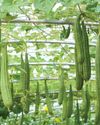
Hobby Farms
Avant Gourd
GROWING LUFFA GOURDS PAYS OFF IN GARDENS AND AT MARKET.
7 mins
Best of Hobby Farms 2025
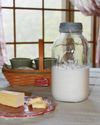
Hobby Farms
RIPE with CULTURE
MAKE DELICIOUS, REFRESHING BREADS, MARINADES & MORE.
6 mins
Best of Hobby Farms 2025
